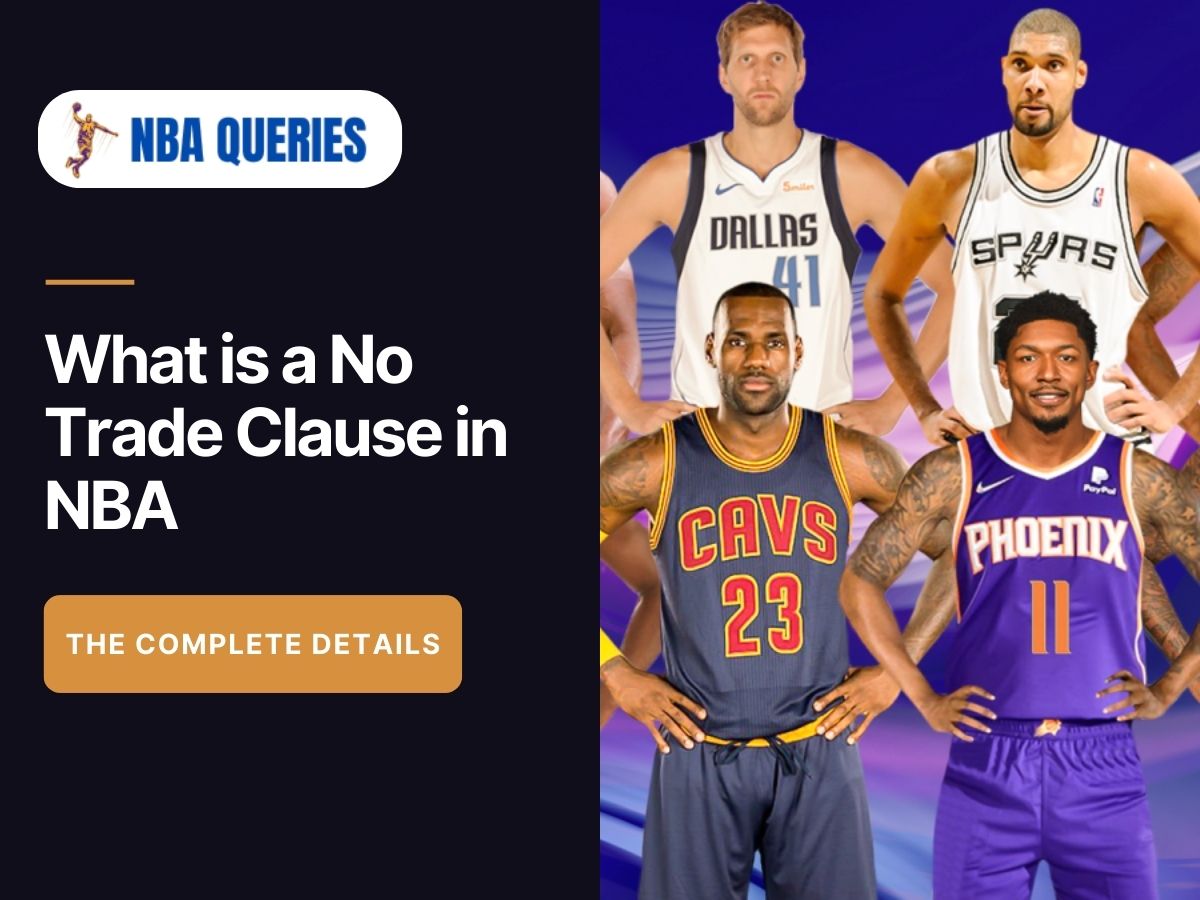The no-trade clause in the NBA is a powerful tool that gives players significant control over their careers, yet it remains one of the rarest stipulations in player contracts. This article explores the intricacies of the no-trade clause, its history, and its impact on players and teams alike, aiming to provide a comprehensive understanding of this unique contract feature.
What is a No-Trade Clause?
A no-trade clause allows an NBA player to veto any trade involving them. This means a player with such a clause in their contract must give their consent before a team can trade them to another team. The Collective Bargaining Agreement specifies that to be eligible for a no-trade clause, a player must have at least eight years of NBA service and four years with the team offering the clause.
The Rarity of No-Trade Clauses
No-trade clauses are exceedingly rare in the NBA. According to the collective bargaining agreement, only players who have been in the league for eight years and have spent at least four of those years with the same team can qualify for a no-trade clause. As of now, Bradley Beal is one of the very few players to have a true no-trade clause in his contract. Historically, less than 0.01% of all NBA players have ever had a no-trade clause.
Notable Players with No-Trade Clauses
Throughout NBA history, only a handful of players have negotiated no-trade clauses into their contracts. This elite list includes some of the most celebrated names in basketball, such as:
- Carmelo Anthony
- Kobe Bryant
- Tim Duncan
- Kevin Garnett
- LeBron James
- Dirk Nowitzki
- David Robinson
- John Stockton
- Dwyane Wade
- Bradley Beal
How No-Trade Clauses Work
No-trade clauses give players unprecedented leverage in negotiations, allowing them to dictate terms or even block trades that do not align with their interests. For a trade to proceed, a player with a no-trade clause must waive it, effectively consenting to the move. This dynamic can significantly impact team strategies, particularly during trade deadlines or when constructing long-term rosters.
The Impact on Teams and Players
Teams are often hesitant to grant no-trade clauses due to the considerable power it hands to players. However, in some cases, teams might offer a no-trade clause as a last resort to retain or attract top talent. For example, Bradley Beal’s no-trade clause with the Washington Wizards was seen as a pivotal factor in his decision to stay with the team, highlighting how such clauses can play a crucial role in negotiations.
The Negotiation of No-Trade Clauses
Negotiating a no-trade clause is a nuanced process, requiring a player to meet specific eligibility criteria and a team willing to grant this powerful right. Players who qualify and seek a no-trade clause often leverage their on-court performance, marketability, and loyalty to the franchise. Teams, on the other hand, must weigh the benefits of retaining a star player against the potential limitations such a clause imposes on their flexibility.
Strategic Implications for Teams
- Roster Flexibility: Teams granting no-trade clauses face decreased roster flexibility. These clauses limit a team’s ability to make moves, as they require the player’s consent for any trade, complicating efforts to adjust the team’s composition or strategy mid-season.
- Negotiation Leverage: Players with no-trade clauses hold significant leverage in negotiations, potentially dictating trade terms or destinations. This dynamic can influence a team’s bargaining position with other franchises and impact the overall trade market.
- Attracting and Retaining Talent: Offering a no-trade clause can be a strategic move for teams looking to attract or retain elite talent. It signals a strong commitment to the player, possibly swaying their decision in favor of staying with the team or signing a new contract.
Challenges and Considerations
- Player Empowerment: No-trade clauses empower players to have a say in their career trajectory, challenging traditional team authority in trade decisions. This shift requires teams to navigate player relationships and preferences carefully.
- Impact on Team Chemistry: The knowledge that a player cannot be traded without their consent may affect team dynamics and chemistry. This factor must be carefully managed to maintain a positive and cohesive team environment.
- Financial Implications: The inclusion of a no-trade clause can also have financial implications for a team, affecting salary cap management and future financial flexibility. Teams must balance the immediate benefits of securing a star player with the long-term implications of such contractual commitments.
The Future of No-Trade Clauses in the NBA
Looking ahead, the role of no-trade clauses in the NBA is likely to continue evolving. As player empowerment becomes increasingly prominent, we may see more players meeting the eligibility criteria and seeking these clauses. However, teams may also develop new strategies for managing the implications of no-trade clauses, perhaps offering alternative forms of contract incentives or finding creative ways to structure deals that satisfy both parties.
Last Words
No-trade clauses represent a fascinating aspect of NBA contract negotiations, embodying the tension between player empowerment and team strategy. While these clauses offer players significant control over their careers, they also present challenges for teams in terms of roster management and strategic planning. As the NBA evolves, the negotiation and impact of no-trade clauses will remain key topics of discussion among teams, players, and fans alike, reflecting the ever-changing landscape of professional basketball.

